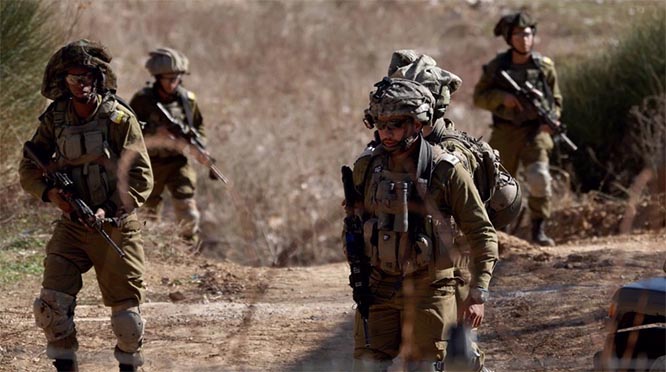
New Delhi, Oct 17: India ranked 94 among 107 nations in the Global Hunger Index 2020 and is in the 'serious' hunger category with experts blaming poor implementation processes, lack of effective monitoring, siloed approach in tackling malnutrition and poor performance by large states behind the low ranking.
Last year, India's rank was 102 out of 117 countries.
The neighbouring Bangladesh, Myanmar and Pakistan too are in the 'serious' category but ranked higher than India in this year's hunger index. While Bangladesh ranked 75, Myanmar and Pakistan are in the 78th and 88th position.
Nepal in 73rd and Sri Lanka in 64th position are in 'moderate' hunger category, the report showed.
Seventeen nations, including China, Belarus, Ukraine, Turkey, Cuba and Kuwait, shared the top rank with GHI scores of less than five, the website of the Global Hunger Index, that tracks hunger and malnutrition, said on Friday.
According to the report, 14 per cent of India's population is undernourished.
It also showed the country recorded a 37.4 per cent stunting rate among children under five and a wasting rate of 17.3 per cent. The under-five mortality rate stood at 3.7 per cent.
Wasting is children who have low weight for their height, reflecting acute undernutrition. Stunting is children under the age of five who have low height for their age, reflecting chronic undernutrition.
Data from 1991 through 2014 for Bangladesh, India, Nepal, and Pakistan showed that stunting is concentrated among children from households facing multiple forms of deprivation, including poor dietary diversity, low levels of maternal education, and household poverty.
During this period, India experienced a decline in under-five mortality, driven largely by a decrease in deaths from birth asphyxia or trauma, neonatal infections, pneumonia, and diarrhoea, the report stated.
"However, child mortality, caused by prematurity and low birth weight, increased particularly in poorer states and rural areas. Prevention of prematurity and low birthweight is identified as a key factor with the potential to reduce under-five mortality in India, through actions such as better antenatal care, education, and nutrition as well as reductions in anaemia and oral tobacco use," it said.
Experts think that poor implementation processes, lack of effective monitoring and siloed approaches to tackling malnutrition often result in poor nutrition indices.
Purnima Menon, a senior research fellow at the International Food Policy Research Institute, New Delhi, said the performance of large states like Uttar Pradesh, Bihar and Madhya Pradesh need to be improved to see an overall change of India's ranking.
"The national average is affected a lot by the states like UP and Bihar... the states which actually have a combination of high levels of malnutrition and they contribute a lot to the population of the country.
"Every fifth child born in India is in Uttar Pradesh. So if you have a high level of malnutrition in a state that has a high population, it contributes a lot to India's average. Obviously, then, India's average will be slow to move," she said.
Ms Menon said big states with large population and a high burden of malnutrition are those which are actually affecting India's average.
"So, if we want a change in India then we would also need a change in Uttar Pradesh, Jharkhand, Madhya Pradesh and Bihar," she said.
Shweta Khandelwal, the head of Nutrition Research and Additional Professor at Public Health Foundation of India, said the country has one of the most impressive portfolios of programmes and policies in nutrition in the books.
"However, the ground realities are quite dismal."
"Research shows that our top-down approach, poor implementation processes, lack of effective monitoring and siloed approaches in tackling malnutrition (missing convergence) often result in poor nutrition indices. We must integrate actions to make public health and nutrition a priority across each sector," she said.
Ms Khandelwal suggested five measures to prevent exacerbation of hunger because of the pandemic.
"Safeguard and promote access to nutritious, safe and affordable diets; invest in improving maternal and child nutrition through pregnancy, infancy, and early childhood; re-activate and scale-up services for the early detection and treatment of child wasting; maintain the provision of nutritious and safe school meals for vulnerable children and expand social protection to safeguard access to nutritious diets and essential service," she said.
She said it is important to aim at curbing multiple forms of malnutrition holistically in a concerted manner rather than single short-sighted fixes.
"Hunger and undernutrition cannot and should not be fixed by mere calorie provision. All stakeholders steered by robust leadership must pay attention to making balanced healthy diets which are climate-friendly, affordable and accessible to all," she added.
GHI score is calculated on four indicators - undernourishment; child wasting, the share of children under the age of five who are wasted-- who have low weight for their height reflecting acute undernutrition); child stunting, children under the age of five who have low height for their age reflecting chronic undernutrition; and child mortality - the mortality rate of children under the age of five.







Comments
Add new comment